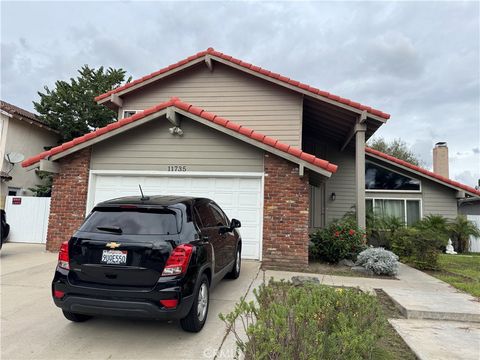Serving Fountain Valley and Orange County communities for over 35 years. (714) 343-9294 MICAH STOVALL #DRE01240489 Real Estate
Real Estate Just Listed Today in Fountain Valley CA
-
$659,990
17168 Newhope #222
Fountain Valley, CA -
$1,550,000
18021 Roch Court
Fountain Valley, CA -
$755,000
17200 Newhope St #23
Fountain Valley, CA -
$2,398,000
17413 Siena Lane
Fountain Valley, CA -
$889,000
17200 NEWHOPE St #31
Fountain Valley, CA -
$1,699,000
11735 Quartz
Fountain Valley, CA -
$568,900
12109 Sylvan River Riv #131
Fountain Valley, CA -
$849,900
15928 Prell Court
Fountain Valley, CA -
$1,725,000
17575 Santa Paula Cir
Fountain Valley, CA -
$1,559,000
10763 El Centro Avenue Ave
Fountain Valley, CA
Lot SizeN/A
Home Size1,112 sqft
Beds2 Beds
Baths2 Baths
Lot Size3,673 sqft
Home Size1,920 sqft
Beds4 Beds
Baths3.5 Baths
Lot Size6,277 sqft
Home Size1,680 sqft
Beds2 Beds
Baths2 Baths
Lot Size5,951 sqft
Home Size3,408 sqft
Beds4 Beds
Baths4 Baths
Lot SizeN/A
Home Size1,920 sqft
Beds3 Beds
Baths3 Baths
Lot Size7,201 sqft
Home Size2,232 sqft
Beds4 Beds
Baths3 Baths
Lot Size19,184 sqft
Home Size916 sqft
Beds2 Beds
Baths1 Bath
Lot Size1,303 sqft
Home Size1,402 sqft
Beds3 Beds
Baths3 Baths
Lot Size7,140 sqft
Home Size2,332 sqft
Beds7 Beds
Baths3 Baths
Lot Size5,101 sqft
Home Size2,175 sqft
Beds5 Beds
Baths2.5 Baths
-
Lot SizeN/A
Home Size1,112 sqft
Beds2 Beds
Baths2 Baths
-
Lot Size3,673 sqft
Home Size1,920 sqft
Beds4 Beds
Baths3.5 Baths
-
Lot Size6,277 sqft
Home Size1,680 sqft
Beds2 Beds
Baths2 Baths
-
Lot Size5,951 sqft
Home Size3,408 sqft
Beds4 Beds
Baths4 Baths
-
Lot SizeN/A
Home Size1,920 sqft
Beds3 Beds
Baths3 Baths
-
Lot Size7,201 sqft
Home Size2,232 sqft
Beds4 Beds
Baths3 Baths
-
Lot Size19,184 sqft
Home Size916 sqft
Beds2 Beds
Baths1 Bath
-
Lot Size1,303 sqft
Home Size1,402 sqft
Beds3 Beds
Baths3 Baths
-
Lot Size7,140 sqft
Home Size2,332 sqft
Beds7 Beds
Baths3 Baths
-
Lot Size5,101 sqft
Home Size2,175 sqft
Beds5 Beds
Baths2.5 Baths
-
$659,990
17168 Newhope #222
Fountain Valley CA Real Estate with the Largest Lots
-
$659,990
17168 Newhope #222
Fountain Valley, CA -
$1,550,000
18021 Roch Court
Fountain Valley, CA -
$755,000
17200 Newhope St #23
Fountain Valley, CA -
$2,398,000
17413 Siena Lane
Fountain Valley, CA -
$889,000
17200 NEWHOPE St #31
Fountain Valley, CA -
$1,699,000
11735 Quartz
Fountain Valley, CA -
$568,900
12109 Sylvan River Riv #131
Fountain Valley, CA -
$849,900
15928 Prell Court
Fountain Valley, CA -
$1,725,000
17575 Santa Paula Cir
Fountain Valley, CA -
$1,559,000
10763 El Centro Avenue Ave
Fountain Valley, CA
Lot SizeN/A
Home Size1,112 sqft
Beds2 Beds
Baths2 Baths
Lot Size3,673 sqft
Home Size1,920 sqft
Beds4 Beds
Baths3.5 Baths
Lot Size6,277 sqft
Home Size1,680 sqft
Beds2 Beds
Baths2 Baths
Lot Size5,951 sqft
Home Size3,408 sqft
Beds4 Beds
Baths4 Baths
Lot SizeN/A
Home Size1,920 sqft
Beds3 Beds
Baths3 Baths
Lot Size7,201 sqft
Home Size2,232 sqft
Beds4 Beds
Baths3 Baths
Lot Size19,184 sqft
Home Size916 sqft
Beds2 Beds
Baths1 Bath
Lot Size1,303 sqft
Home Size1,402 sqft
Beds3 Beds
Baths3 Baths
Lot Size7,140 sqft
Home Size2,332 sqft
Beds7 Beds
Baths3 Baths
Lot Size5,101 sqft
Home Size2,175 sqft
Beds5 Beds
Baths2.5 Baths
-
Lot SizeN/A
Home Size1,112 sqft
Beds2 Beds
Baths2 Baths
-
Lot Size3,673 sqft
Home Size1,920 sqft
Beds4 Beds
Baths3.5 Baths
-
Lot Size6,277 sqft
Home Size1,680 sqft
Beds2 Beds
Baths2 Baths
-
Lot Size5,951 sqft
Home Size3,408 sqft
Beds4 Beds
Baths4 Baths
-
Lot SizeN/A
Home Size1,920 sqft
Beds3 Beds
Baths3 Baths
-
Lot Size7,201 sqft
Home Size2,232 sqft
Beds4 Beds
Baths3 Baths
-
Lot Size19,184 sqft
Home Size916 sqft
Beds2 Beds
Baths1 Bath
-
Lot Size1,303 sqft
Home Size1,402 sqft
Beds3 Beds
Baths3 Baths
-
Lot Size7,140 sqft
Home Size2,332 sqft
Beds7 Beds
Baths3 Baths
-
Lot Size5,101 sqft
Home Size2,175 sqft
Beds5 Beds
Baths2.5 Baths
-
$659,990
17168 Newhope #222
Largest Price Reduced Real Estate in Fountain Valley CA
-
$659,990
17168 Newhope #222
Fountain Valley, CA -
$1,550,000
18021 Roch Court
Fountain Valley, CA -
$755,000
17200 Newhope St #23
Fountain Valley, CA -
$2,398,000
17413 Siena Lane
Fountain Valley, CA -
$889,000
17200 NEWHOPE St #31
Fountain Valley, CA -
$1,699,000
11735 Quartz
Fountain Valley, CA -
$568,900
12109 Sylvan River Riv #131
Fountain Valley, CA -
$849,900
15928 Prell Court
Fountain Valley, CA -
$1,725,000
17575 Santa Paula Cir
Fountain Valley, CA -
$1,559,000
10763 El Centro Avenue Ave
Fountain Valley, CA
Lot SizeN/A
Home Size1,112 sqft
Beds2 Beds
Baths2 Baths
Lot Size3,673 sqft
Home Size1,920 sqft
Beds4 Beds
Baths3.5 Baths
Lot Size6,277 sqft
Home Size1,680 sqft
Beds2 Beds
Baths2 Baths
Lot Size5,951 sqft
Home Size3,408 sqft
Beds4 Beds
Baths4 Baths
Lot SizeN/A
Home Size1,920 sqft
Beds3 Beds
Baths3 Baths
Lot Size7,201 sqft
Home Size2,232 sqft
Beds4 Beds
Baths3 Baths
Lot Size19,184 sqft
Home Size916 sqft
Beds2 Beds
Baths1 Bath
Lot Size1,303 sqft
Home Size1,402 sqft
Beds3 Beds
Baths3 Baths
Lot Size7,140 sqft
Home Size2,332 sqft
Beds7 Beds
Baths3 Baths
Lot Size5,101 sqft
Home Size2,175 sqft
Beds5 Beds
Baths2.5 Baths
-
Lot SizeN/A
Home Size1,112 sqft
Beds2 Beds
Baths2 Baths
-
Lot Size3,673 sqft
Home Size1,920 sqft
Beds4 Beds
Baths3.5 Baths
-
Lot Size6,277 sqft
Home Size1,680 sqft
Beds2 Beds
Baths2 Baths
-
Lot Size5,951 sqft
Home Size3,408 sqft
Beds4 Beds
Baths4 Baths
-
Lot SizeN/A
Home Size1,920 sqft
Beds3 Beds
Baths3 Baths
-
Lot Size7,201 sqft
Home Size2,232 sqft
Beds4 Beds
Baths3 Baths
-
Lot Size19,184 sqft
Home Size916 sqft
Beds2 Beds
Baths1 Bath
-
Lot Size1,303 sqft
Home Size1,402 sqft
Beds3 Beds
Baths3 Baths
-
Lot Size7,140 sqft
Home Size2,332 sqft
Beds7 Beds
Baths3 Baths
-
Lot Size5,101 sqft
Home Size2,175 sqft
Beds5 Beds
Baths2.5 Baths
-
$659,990
17168 Newhope #222
Most Expensive Real Estate in Fountain Valley CA
-
$659,990
17168 Newhope #222
Fountain Valley, CA -
$1,550,000
18021 Roch Court
Fountain Valley, CA -
$755,000
17200 Newhope St #23
Fountain Valley, CA -
$2,398,000
17413 Siena Lane
Fountain Valley, CA -
$889,000
17200 NEWHOPE St #31
Fountain Valley, CA -
$1,699,000
11735 Quartz
Fountain Valley, CA -
$568,900
12109 Sylvan River Riv #131
Fountain Valley, CA -
$849,900
15928 Prell Court
Fountain Valley, CA -
$1,725,000
17575 Santa Paula Cir
Fountain Valley, CA -
$1,559,000
10763 El Centro Avenue Ave
Fountain Valley, CA
Lot SizeN/A
Home Size1,112 sqft
Beds2 Beds
Baths2 Baths
Lot Size3,673 sqft
Home Size1,920 sqft
Beds4 Beds
Baths3.5 Baths
Lot Size6,277 sqft
Home Size1,680 sqft
Beds2 Beds
Baths2 Baths
Lot Size5,951 sqft
Home Size3,408 sqft
Beds4 Beds
Baths4 Baths
Lot SizeN/A
Home Size1,920 sqft
Beds3 Beds
Baths3 Baths
Lot Size7,201 sqft
Home Size2,232 sqft
Beds4 Beds
Baths3 Baths
Lot Size19,184 sqft
Home Size916 sqft
Beds2 Beds
Baths1 Bath
Lot Size1,303 sqft
Home Size1,402 sqft
Beds3 Beds
Baths3 Baths
Lot Size7,140 sqft
Home Size2,332 sqft
Beds7 Beds
Baths3 Baths
Lot Size5,101 sqft
Home Size2,175 sqft
Beds5 Beds
Baths2.5 Baths
-
Lot SizeN/A
Home Size1,112 sqft
Beds2 Beds
Baths2 Baths
-
Lot Size3,673 sqft
Home Size1,920 sqft
Beds4 Beds
Baths3.5 Baths
-
Lot Size6,277 sqft
Home Size1,680 sqft
Beds2 Beds
Baths2 Baths
-
Lot Size5,951 sqft
Home Size3,408 sqft
Beds4 Beds
Baths4 Baths
-
Lot SizeN/A
Home Size1,920 sqft
Beds3 Beds
Baths3 Baths
-
Lot Size7,201 sqft
Home Size2,232 sqft
Beds4 Beds
Baths3 Baths
-
Lot Size19,184 sqft
Home Size916 sqft
Beds2 Beds
Baths1 Bath
-
Lot Size1,303 sqft
Home Size1,402 sqft
Beds3 Beds
Baths3 Baths
-
Lot Size7,140 sqft
Home Size2,332 sqft
Beds7 Beds
Baths3 Baths
-
Lot Size5,101 sqft
Home Size2,175 sqft
Beds5 Beds
Baths2.5 Baths
-
$659,990
17168 Newhope #222
Most Square Footage in Fountain Valley CA Real Estate
-
$659,990
17168 Newhope #222
Fountain Valley, CA -
$1,550,000
18021 Roch Court
Fountain Valley, CA -
$755,000
17200 Newhope St #23
Fountain Valley, CA -
$2,398,000
17413 Siena Lane
Fountain Valley, CA -
$889,000
17200 NEWHOPE St #31
Fountain Valley, CA -
$1,699,000
11735 Quartz
Fountain Valley, CA -
$568,900
12109 Sylvan River Riv #131
Fountain Valley, CA -
$849,900
15928 Prell Court
Fountain Valley, CA -
$1,725,000
17575 Santa Paula Cir
Fountain Valley, CA -
$1,559,000
10763 El Centro Avenue Ave
Fountain Valley, CA
Lot SizeN/A
Home Size1,112 sqft
Beds2 Beds
Baths2 Baths
Lot Size3,673 sqft
Home Size1,920 sqft
Beds4 Beds
Baths3.5 Baths
Lot Size6,277 sqft
Home Size1,680 sqft
Beds2 Beds
Baths2 Baths
Lot Size5,951 sqft
Home Size3,408 sqft
Beds4 Beds
Baths4 Baths
Lot SizeN/A
Home Size1,920 sqft
Beds3 Beds
Baths3 Baths
Lot Size7,201 sqft
Home Size2,232 sqft
Beds4 Beds
Baths3 Baths
Lot Size19,184 sqft
Home Size916 sqft
Beds2 Beds
Baths1 Bath
Lot Size1,303 sqft
Home Size1,402 sqft
Beds3 Beds
Baths3 Baths
Lot Size7,140 sqft
Home Size2,332 sqft
Beds7 Beds
Baths3 Baths
Lot Size5,101 sqft
Home Size2,175 sqft
Beds5 Beds
Baths2.5 Baths
-
Lot SizeN/A
Home Size1,112 sqft
Beds2 Beds
Baths2 Baths
-
Lot Size3,673 sqft
Home Size1,920 sqft
Beds4 Beds
Baths3.5 Baths
-
Lot Size6,277 sqft
Home Size1,680 sqft
Beds2 Beds
Baths2 Baths
-
Lot Size5,951 sqft
Home Size3,408 sqft
Beds4 Beds
Baths4 Baths
-
Lot SizeN/A
Home Size1,920 sqft
Beds3 Beds
Baths3 Baths
-
Lot Size7,201 sqft
Home Size2,232 sqft
Beds4 Beds
Baths3 Baths
-
Lot Size19,184 sqft
Home Size916 sqft
Beds2 Beds
Baths1 Bath
-
Lot Size1,303 sqft
Home Size1,402 sqft
Beds3 Beds
Baths3 Baths
-
Lot Size7,140 sqft
Home Size2,332 sqft
Beds7 Beds
Baths3 Baths
-
Lot Size5,101 sqft
Home Size2,175 sqft
Beds5 Beds
Baths2.5 Baths
-
$659,990
17168 Newhope #222
Least Expensive Real Estate in Fountain Valley CA
-
$659,990
17168 Newhope #222
Fountain Valley, CA -
$1,550,000
18021 Roch Court
Fountain Valley, CA -
$755,000
17200 Newhope St #23
Fountain Valley, CA -
$2,398,000
17413 Siena Lane
Fountain Valley, CA -
$889,000
17200 NEWHOPE St #31
Fountain Valley, CA -
$1,699,000
11735 Quartz
Fountain Valley, CA -
$568,900
12109 Sylvan River Riv #131
Fountain Valley, CA -
$849,900
15928 Prell Court
Fountain Valley, CA -
$1,725,000
17575 Santa Paula Cir
Fountain Valley, CA -
$1,559,000
10763 El Centro Avenue Ave
Fountain Valley, CA
Lot SizeN/A
Home Size1,112 sqft
Beds2 Beds
Baths2 Baths
Lot Size3,673 sqft
Home Size1,920 sqft
Beds4 Beds
Baths3.5 Baths
Lot Size6,277 sqft
Home Size1,680 sqft
Beds2 Beds
Baths2 Baths
Lot Size5,951 sqft
Home Size3,408 sqft
Beds4 Beds
Baths4 Baths
Lot SizeN/A
Home Size1,920 sqft
Beds3 Beds
Baths3 Baths
Lot Size7,201 sqft
Home Size2,232 sqft
Beds4 Beds
Baths3 Baths
Lot Size19,184 sqft
Home Size916 sqft
Beds2 Beds
Baths1 Bath
Lot Size1,303 sqft
Home Size1,402 sqft
Beds3 Beds
Baths3 Baths
Lot Size7,140 sqft
Home Size2,332 sqft
Beds7 Beds
Baths3 Baths
Lot Size5,101 sqft
Home Size2,175 sqft
Beds5 Beds
Baths2.5 Baths
-
Lot SizeN/A
Home Size1,112 sqft
Beds2 Beds
Baths2 Baths
-
Lot Size3,673 sqft
Home Size1,920 sqft
Beds4 Beds
Baths3.5 Baths
-
Lot Size6,277 sqft
Home Size1,680 sqft
Beds2 Beds
Baths2 Baths
-
Lot Size5,951 sqft
Home Size3,408 sqft
Beds4 Beds
Baths4 Baths
-
Lot SizeN/A
Home Size1,920 sqft
Beds3 Beds
Baths3 Baths
-
Lot Size7,201 sqft
Home Size2,232 sqft
Beds4 Beds
Baths3 Baths
-
Lot Size19,184 sqft
Home Size916 sqft
Beds2 Beds
Baths1 Bath
-
Lot Size1,303 sqft
Home Size1,402 sqft
Beds3 Beds
Baths3 Baths
-
Lot Size7,140 sqft
Home Size2,332 sqft
Beds7 Beds
Baths3 Baths
-
Lot Size5,101 sqft
Home Size2,175 sqft
Beds5 Beds
Baths2.5 Baths
-
$659,990
17168 Newhope #222
Powered by WordPress. Built on the Thematic Theme Framework. test
Copyright 2026 | Orange County web design












Spring Forward with the “Latte Factor”
The more we spend unnecessarily, the less money we save for our true priorities and future needs. That’s especially important in challenging economic times. BusinessWeek asked financial advisors for tips on how to reduce expenses and boost savings. As we incorporate more and more of these tips into daily life, the savings add up. Changing spending habits can be difficult, but here are suggestions to get started especially important in challenging economic times. BusinessWeek asked financial advisors for tips on how to reduce expenses and boost savings. As we incorporate more and more of these tips into daily life, the savings add up. Changing spending habits can be difficult, but here are suggestions to get started. Fountain Valley
1
The “latte factor” simply means you make your own coffee. You don’t have to entirely ban drinking coffee, but skip it as often as possible unless you make it at home. Also, bottle your own water: Drinking water is good for your health. If you are not happy with tap water, invest in a water filter – in the long run it can save a lot of money.
2
Track Every Expense. Financial advisors say the best way to control your spending is to know precisely where all your cash is going each month. Make a budget and stick to it. Meal Plan for your week/month and make a list before going shopping: Buy in bulk & buy generic whenever possible.
3
Borrow books from the library: Whenever possible, borrow your books instead of buying them. The card to your local public library is free and our local libraries are well stocked.
4
Cut Utility Bills, Especially Electricity. Experts are full of advice on lowering electricity and heating bills: Buy efficient light bulbs; lower the thermostat; turn off the air conditioning whenever possible; turn off lights and unplug appliances when not needed.
By Micah Stovall